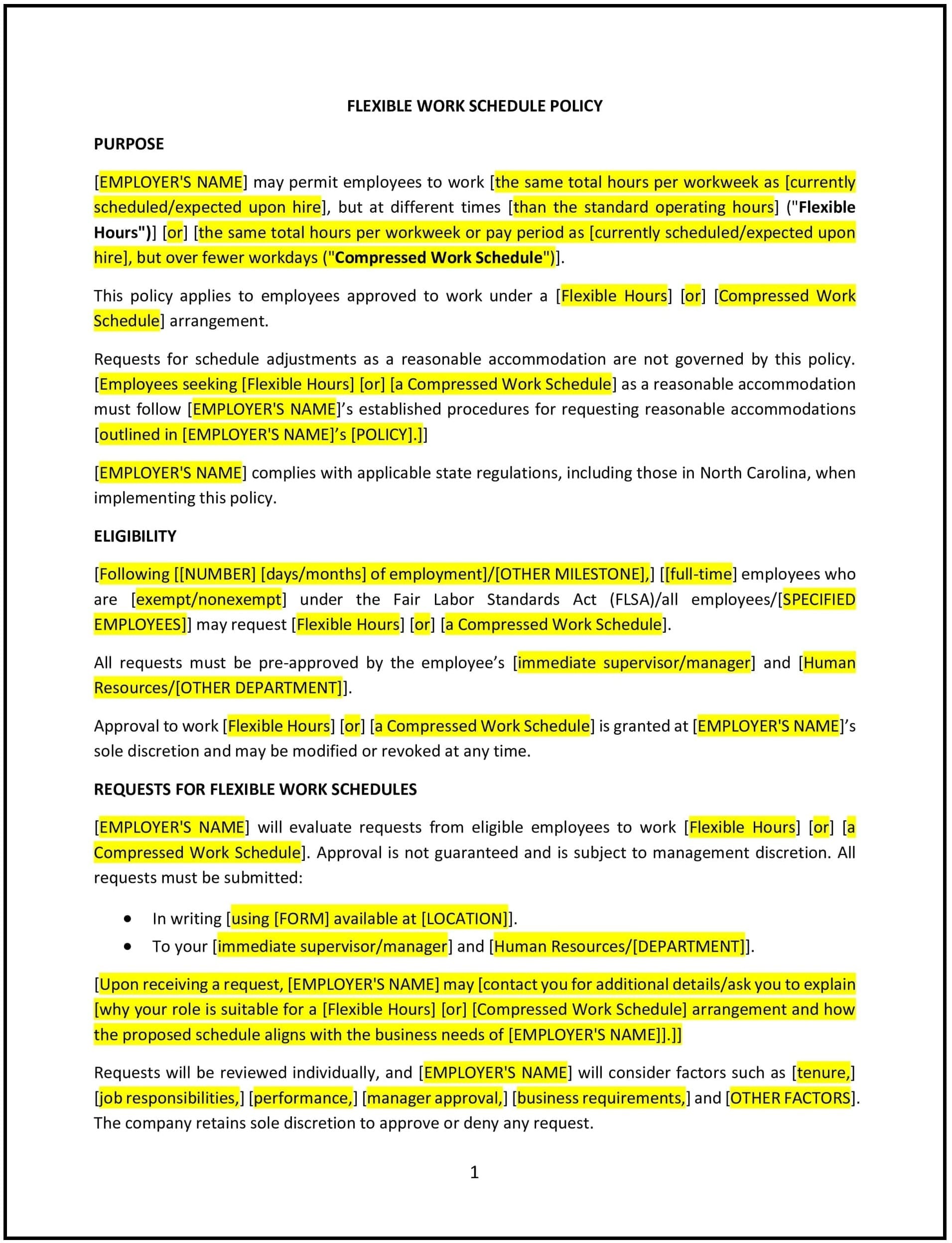Flexible work schedule policy (North Carolina): Free template
Got contracts to review? While you're here for policies, let Cobrief make contract review effortless—start your free review now.

Customize this template for free
Flexible work schedule policy (North Carolina)
A flexible work schedule policy helps North Carolina businesses provide employees with the option to adjust their working hours or work location in order to meet personal or family obligations, while still fulfilling their job responsibilities. This policy outlines the procedures for requesting flexible work arrangements, the types of flexibility available, and the criteria for approval.
By adopting this policy, businesses can support employees’ work-life balance, improve productivity, and enhance employee satisfaction and retention.
How to use this flexible work schedule policy (North Carolina)
- Define flexible work options: Specify the types of flexible work arrangements available, such as telecommuting, flexible hours, compressed workweeks, or part-time schedules.
- Set eligibility criteria: Define which employees are eligible for flexible work schedules, including factors such as tenure, job role, and performance.
- Establish request procedures: Outline the process for requesting a flexible work arrangement, including who employees should contact, the required documentation (if applicable), and the timeline for submitting requests.
- Define expectations: Clarify the expectations for employees on flexible schedules, such as meeting performance targets, availability during core hours, and maintaining communication with supervisors and colleagues.
- Reflect North Carolina-specific considerations: Ensure the policy complies with North Carolina’s labor laws and addresses any specific requirements for flexible work arrangements.
Benefits of using this flexible work schedule policy (North Carolina)
This policy provides several benefits for North Carolina businesses:
- Increases employee satisfaction: Flexible work schedules allow employees to better balance their personal and professional lives, leading to higher job satisfaction and engagement.
- Enhances recruitment and retention: Offering flexibility can make the company more attractive to top talent, particularly those seeking work-life balance, and can improve retention.
- Boosts productivity: Employees are often more productive when they can work during their preferred hours or in a flexible environment, leading to improved performance.
- Reduces absenteeism: Flexible work arrangements can help reduce absenteeism by allowing employees to better manage personal appointments or family responsibilities without taking time off.
- Supports a diverse workforce: Flexible work schedules can help accommodate employees with different needs, such as parents, caregivers, or those with disabilities.
Tips for using this flexible work schedule policy (North Carolina)
- Communicate the policy clearly: Ensure that all employees are informed about the available flexible work options and the process for requesting flexibility.
- Set clear performance expectations: While offering flexibility, ensure that employees are still held accountable for meeting deadlines, performance goals, and other job requirements.
- Be consistent: Apply the policy fairly across all employees and ensure that flexible work arrangements do not create unfair advantages or disadvantages.
- Review the policy regularly: The policy should be reviewed periodically to ensure it aligns with North Carolina’s labor laws, the needs of the business, and the evolving preferences of employees.